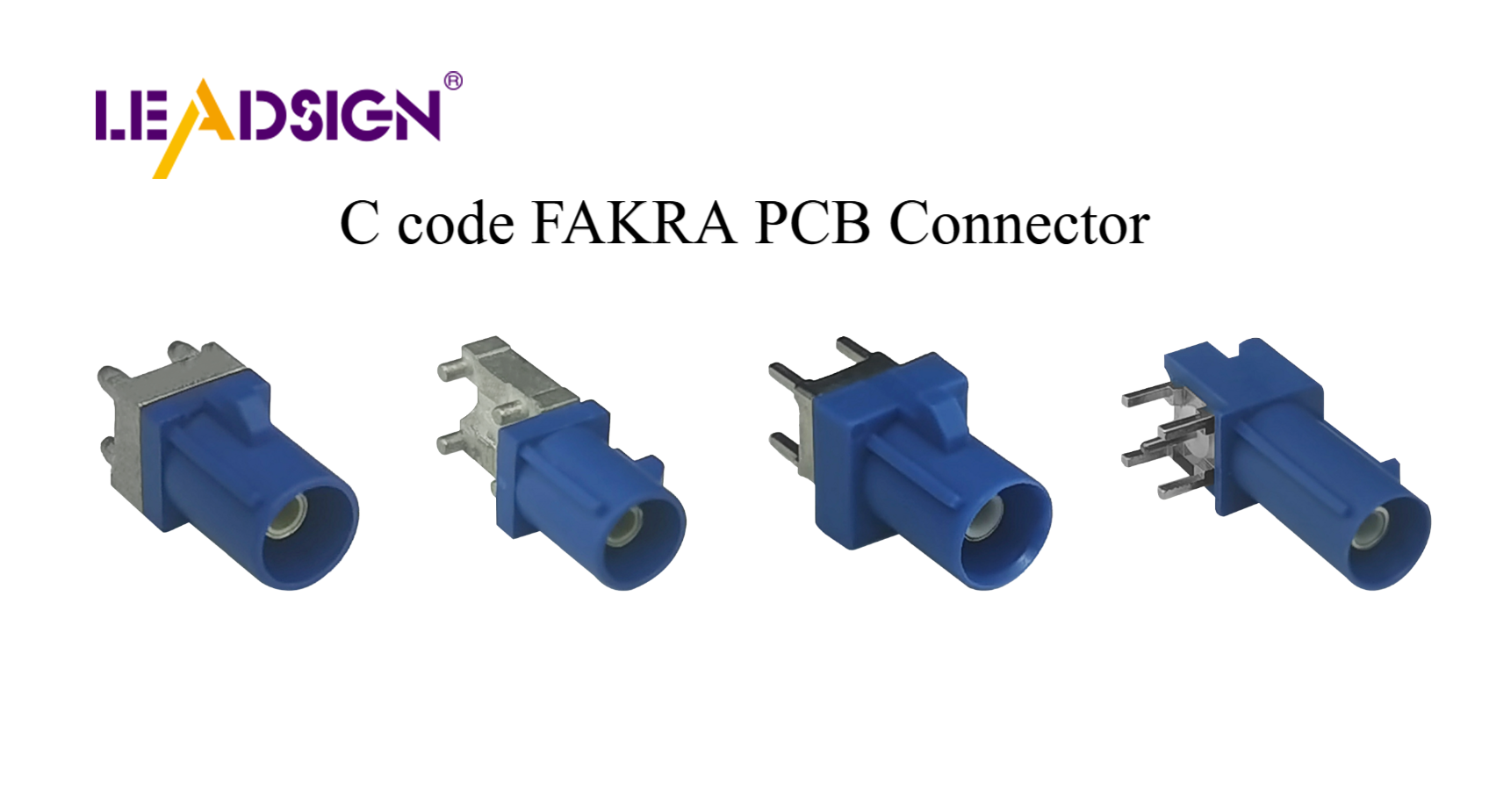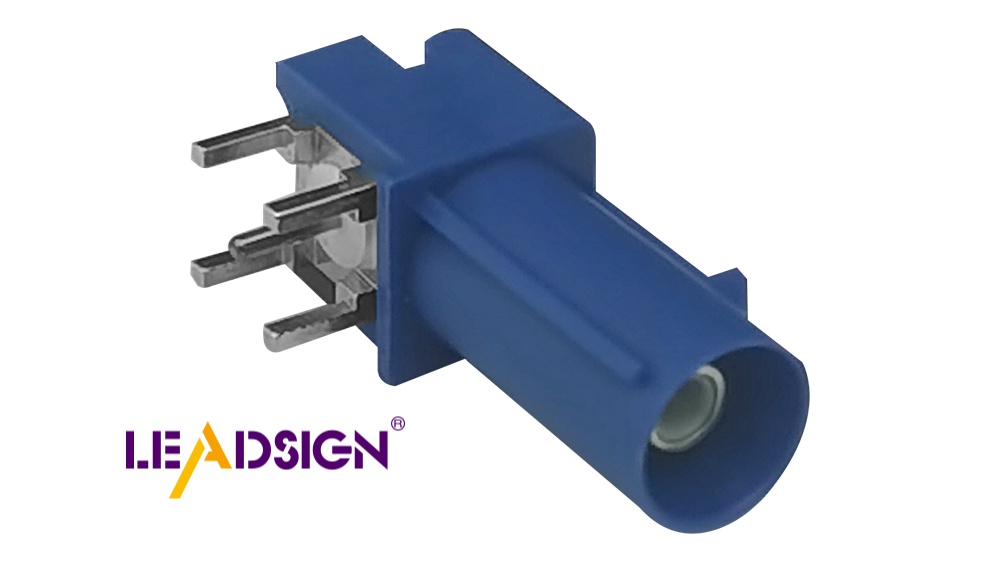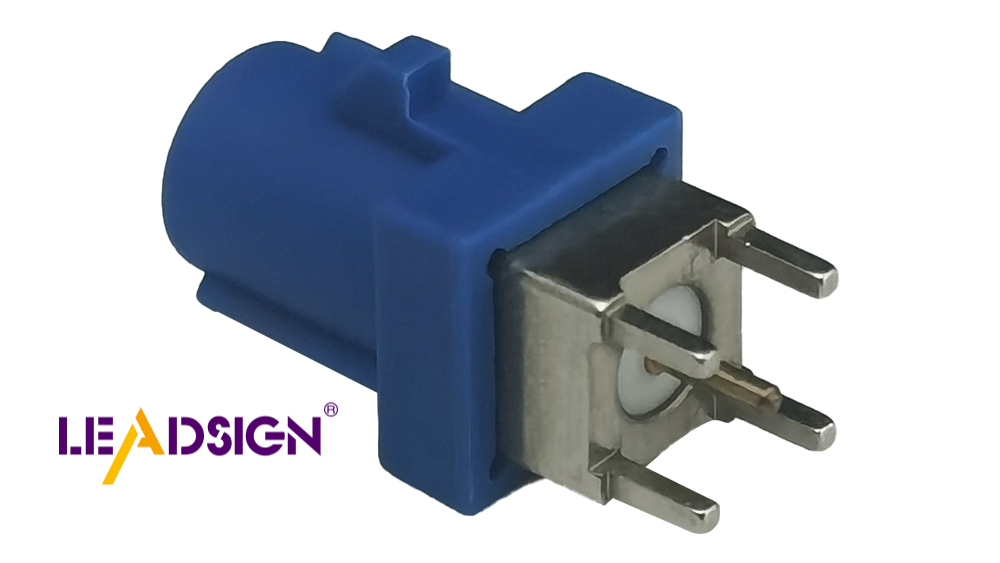Troubleshooting Common Issues with Vehicle Connectors

Vehicle connectors are key to your car's electrical systems. These small parts help different car parts work together smoothly. However, they can encounter problems like rust, loose wires, or wear over time. Factors such as water and heat can accelerate damage. This can lead to your car not functioning properly or becoming unsafe. Addressing these issues early saves money and extends the lifespan of your vehicle.
Key Takeaways
Regularly inspect vehicle connectors for signs of corrosion, loose wires, or damage to catch issues early and prevent costly repairs.
Use quality tools like a multimeter and wire strippers to troubleshoot and fix connector problems effectively.
Clean connectors with electrical contact cleaner and apply dielectric grease to protect against moisture and rust, ensuring better performance.
Replace damaged connectors promptly to maintain the integrity of your car's electrical system and avoid further complications.
Store spare connectors and tools in a dry, organized space to facilitate quick repairs when needed.
Seek professional help for complex electrical issues or recurring problems to ensure safe and effective repairs.
Identifying Common Issues with Vehicle Connectors

Electrical Corrosion
Electrical corrosion is a common problem with vehicle connectors. It happens when water, road salt, or other chemicals touch the metal parts. This makes the connection weaker and stops electricity from flowing well. For example, road salts like calcium chloride can make corrosion worse over time.
You might see dim lights, broken sensors, or a dead battery. These small problems can turn into big ones, like total electrical failure. Stopping corrosion early saves money and avoids surprise repairs. Check and clean your connectors often to catch corrosion before it gets worse.
Loose or Damaged Connections
Loose or broken connections can stop electricity from flowing properly. Driving vibrations, bad installation, or old age can loosen connectors. Damage can also happen from hits, weather, or cheap materials. When this happens, you may notice flickering lights or strange system behavior.
Using poor-quality connectors makes these problems more likely. In bad cases, it can cause equipment failure or even fires. To stay safe, make sure connectors are tight and not damaged. Replace broken ones quickly to protect your car's electrical system.
Wear and Tear Over Time
Connectors wear out as they get older. Heat, water, and chemicals slowly damage them. Over time, this can cause cracks, poor performance, or complete failure. Older cars or those in tough conditions face this problem more often.
Regular checks help reduce wear and tear effects. Look for signs like cracks, discoloration, or weak performance. Fixing these issues early keeps your connectors working longer and your car running smoothly.
Tools and Materials Needed for Troubleshooting
Having the right tools makes fixing vehicle connectors easier. Being prepared saves time and avoids extra damage to wires.
Tools for Finding Problems
To find issues, you need good tools. These tools help spot loose wires or rust. Important tools include:
Multimeter: Checks voltage, current, and resistance in wires.
Wire Strippers: Removes wire covering without causing harm.
Crimping Tool: Attaches wires to connectors securely.
Screwdrivers and Pliers: Helps take apart and fix connectors.
Butt Connector Crimpers: Repairs or joins wires tightly.
Using quality tools gives better results and fewer mistakes. Always pick tools made for car wiring for the best fixes.
Cleaning and Care Supplies
Clean connectors work better and last longer. Dirt and rust can block electricity flow. Use these items to clean connectors:
Electrical Contact Cleaner: Cleans dirt and rust without harm.
Dielectric Grease: Stops moisture and prevents rust.
Compressed Air: Blows away dirt from small spaces.
Small Wire Brush: Scrubs off tough dirt or rust gently.
Soft Cloth or Microfiber Towel: Wipes connectors after cleaning.
Cleaning often improves performance and keeps connectors working longer. Turn off power before cleaning to stay safe.
Spare Parts and Extras
Sometimes, fixing connectors needs new parts. Having extras makes repairs faster. Keep these items ready:
High-Quality Connectors: Strong connectors last longer and fail less.
Wiring Harness Components: Includes seals and terminals to protect wires.
Cable Ties and Heat Shrink Tubing: Keeps wires safe and neat.
Spare Fuses and Relays: Replaces broken parts in the system.
Using good replacement parts ensures better repairs and improves your car’s electrical system.
Step-by-Step Troubleshooting Guide
Checking Vehicle Connectors
Begin by looking closely at the connectors. Search for green or white residue, which shows corrosion. Look for loose wires, cracks, or color changes. These signs often mean damage or wear. Focus on connectors near water or heat, as they get damaged faster.
Use a flashlight to see hidden areas. Gently move the connectors to check if they are tight. If they move, tighten them right away. Regular checks help find small problems early. Fixing them quickly keeps your car's electrical system working well.
Tip: Turn off the power before checking to avoid shocks or damage.
Cleaning and Fixing Connectors
Dirty or rusty connectors can block electricity flow. Clean them with an electrical contact cleaner. Spray it directly to remove dirt and rust. For tough spots, scrub gently with a small wire brush. Be careful not to press too hard to avoid breaking them.
After cleaning, dry the connectors with a soft cloth or air. Add a thin layer of dielectric grease to stop rust and moisture. This step helps the connectors last longer and work better. Clean connectors keep your car parts connected smoothly.
Pro Tip: Use cleaners safe for plastic to protect the connector casing.
Checking Electrical Flow
Testing ensures electricity moves through the connectors properly. Use a multimeter for this job. Set it to continuity mode. Place the probes on the connector ends. A beep or screen reading means the connection is good. No response means the connector might be broken.
Check each wire for breaks or weak spots. Replace any damaged wires or connectors quickly. Continuity testing finds and fixes electrical problems easily. This step is important for keeping your car systems working well.
Reminder: Follow the multimeter instructions to get correct results.
Changing Broken Parts
Broken connectors can mess up your car's electrical system. Changing them keeps things working well and avoids more problems. Follow these steps to fix broken parts properly.
Find the Broken Connector
Start by finding the broken connector. Look for cracks, color changes, or bent pins. Use a flashlight to check hidden spots. Focus on connectors near heat or water since they break more often.Turn Off the Power
Always switch off the car's power before starting. This keeps you safe from shocks and protects other parts. Disconnect the battery to make sure no power is flowing.Take Out the Broken Connector
Use tools like pliers or screwdrivers to remove the broken connector. Don’t pull the wires directly, as this might damage them. If it’s stuck, gently wiggle it loose without breaking nearby parts.Get the New Connector Ready
Pick a strong replacement connector that matches the old one. Check the new connector for any problems before using it. If needed, cut and strip the wire ends for a clean fit.Attach the New Connector
Use a crimping tool to connect the new connector to the wires. Make sure it’s tight and secure. Cover the joint with heat shrink tubing or tape to keep out dirt and water.Check the Connection
Reconnect the battery and test the new connector. Use a multimeter to see if electricity flows correctly. Make sure all systems, like lights or sensors, are working fine. If there’s a problem, check your work again.
Tip: Keep extra connectors and wiring parts in your tools. Being ready saves time during sudden repairs.
Changing broken parts helps your car work better and last longer. Regular checks and quick fixes keep your car reliable and running smoothly.
Preventative Maintenance Tips for Automotive Connectors

Taking care of vehicle connectors keeps them working well. Follow these tips to avoid problems and keep your car's electrical system in good condition.
Regular Inspections and Cleaning
Check your connectors often to spot problems early. Look for cracks, rust, or damage. Focus on areas near water, heat, or dirt. Worn wires or faded connectors may mean trouble.
Clean connectors to remove dirt and grime. Use an electrical contact cleaner to clean safely. A small brush can help with tough spots, but be gentle. After cleaning, add dielectric grease to block moisture and stop rust. This simple step helps connectors last longer.
Tip: Turn off the power before checking or cleaning connectors to stay safe.
Protective Measures Against Electrical Corrosion
Stop corrosion by checking connectors for rust or residue often. Replace broken parts quickly to stop rust from spreading. Fix cracked wires fast, as they make corrosion worse.
Use strong connectors to protect your car's electrical system. Good connectors, like pigtail connectors, give a solid connection. Adding dielectric grease after cleaning keeps moisture and dirt away.
Pro Tip: Use grommets where wires pass through holes to avoid damage and rust.
Proper Storage and Handling
Store spare connectors in a dry, clean place. Keep them organized to avoid damage. Don’t pull wires directly when handling connectors, as this can break them.
When installing, use the right size and type of connector. Crimp them tightly and cover them well to keep the connection strong. These steps help connectors last longer and work better.
Reminder: Follow the maker's instructions for installing and handling connectors.
By following these tips, you can keep your connectors in great shape. Regular care stops rust and keeps your car's electrical system reliable.
When to Ask for Expert Help
Vehicle connectors are important for your car's electrical system. While simple tools can fix many problems, some need expert help. Knowing when to ask for help keeps your car safe and working.
Complicated Electrical Problems
Some electrical issues are too hard to fix alone. If many systems fail or electrical problems happen often, there may be deeper issues. These could involve tricky wiring or broken parts needing special skills to repair.
Experts use advanced tools to find the exact problem. They can spot hidden wiring issues or check hard-to-reach connectors. Trying to fix these yourself might cause more damage or risks. Experts ensure proper repairs and avoid costly errors.
Tip: If dashboard lights flicker or sensors fail often, see an expert quickly.
Ongoing or Repeated Issues
Repeated connector problems show deeper issues. For example, if rust keeps coming back after cleaning, it could be due to bad sealing or the environment. If connectors loosen often, vibrations or cheap parts might be the reason.
Experts can find the cause of these ongoing problems. They may suggest better connectors or stronger protection for your wires. Their advice fixes the root problem, saving you time and money later.
Pro Tip: Regular expert checks can find and fix problems early.
Knowing when to call an expert protects your car's electrical system. Complicated failures and repeated issues need professional care to keep your car safe and reliable.
Car connectors are important for your car's electrical system to work well. Checking and cleaning them often keeps them in good shape. This helps avoid problems like rust or loose wires. Regular care can save you money on big repairs later. If issues don’t stop, ask an expert to fix them. Taking care of connectors improves your car's performance and saves money over time. Using strong connectors and keeping them clean helps your car last longer.
FAQ
What are vehicle connectors, and why are they important?
Vehicle connectors join electrical parts in your car. They help electricity move between systems like lights and sensors. Without good connectors, your car may not work safely or properly.
Tip: Using strong connectors lowers the chance of frequent problems.
How can I identify a faulty vehicle connector?
Look for corrosion, loose wires, cracks, or color changes. Flickering lights or broken sensors can also mean connector problems. Strange system behavior is another sign to check.
Pro Tip: Checking connectors often helps find issues before they get worse.
What tools do I need to troubleshoot vehicle connectors?
You’ll need tools like a multimeter, wire strippers, and screwdrivers. Cleaning items like electrical contact cleaner and dielectric grease are also helpful.
Reminder: Use tools made for cars to avoid damaging connectors.
How do I clean corroded connectors safely?
Turn off power first. Spray electrical contact cleaner to remove dirt and rust. For tough spots, scrub gently with a small wire brush. Add dielectric grease after cleaning to stop future rust.
Tip: Pick a cleaner safe for plastic to protect the casing.
How often should I inspect my vehicle connectors?
Check your connectors every few months or during car maintenance. Focus on connectors near water, heat, or dirt since they wear out faster.
Advice: Regular checks keep connectors working well and avoid surprises.
Can I replace a damaged connector myself?
Yes, you can if you have the right tools and parts. Turn off power, remove the broken connector, and attach the new one tightly. Test it to make sure it works.
Warning: If unsure, ask a professional to avoid making things worse.
What are pigtail connectors, and why are they important?
Pigtail connectors are pre-wired and make repairs easier. They give a strong connection, which helps your car stay safe and work well.
Fact: Taking care of pigtail connectors improves car safety and reliability.
How can I prevent electrical corrosion in connectors?
Use dielectric grease to block moisture. Add grommets to protect wires in openings. Replace broken parts quickly to stop rust from spreading.
Pro Tip: Strong connectors with good seals lower the chance of rust.
When should I seek professional help for connector issues?
Call an expert for hard electrical problems or repeated failures. They have special tools to find and fix hidden issues.
Advice: Don’t wait if many systems fail or problems keep coming back.
Why is regular maintenance of vehicle connectors necessary?
Regular care keeps connectors clean and working well. It stops problems, makes your car last longer, and saves money on big repairs.
Conclusion: Taking care of connectors keeps your car reliable and running better.
See Also
Why Fakra Connectors Matter for Honda Cars
Enhancing Data Flow with Advanced Automotive Connectors
Fakra Connectors: Essential for Today's Vehicles
Discovering the Advantages of Fakra Connectors
Boosting Data Transfer with High-Speed Automotive Connectors

